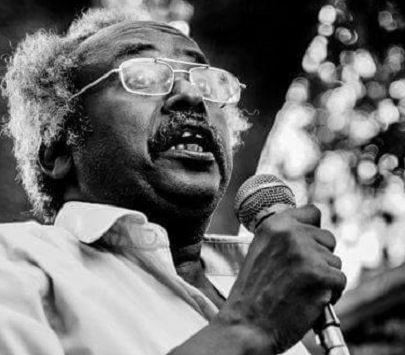An economist and member of the Political Bureau of the Sudanese Communist Party, Sidqi Kaballo, has ruled out a neutral stance in the ongoing war in Sudan.
He emphasized that the situation demanded either support for the continuation of the war or a concerted effort to end it. He pointed out that ending the war required a popular decision, backed by strong international efforts to enforce a ceasefire and prevent the arming of the warring factions.
A ceasefire, he explained, was a fundamental step that neither party could undertake on their own.
“The United States, as one of the world’s largest arms exporters, can play a crucial role in preventing the arming of the warring parties through its laws that impose strict restrictions on the use of its weapons in international conflicts,” Kaballo explained. “There is the potential for imposing international aerial and maritime surveillance on Sudan, and monitoring its borders using satellites and drones to prevent arms smuggling.”
He asserted that the international community has the technological and human resources to enforce a ceasefire and stop the funding of the warring factions with weapons.
“There is the threat of the continued war leading to more crimes against civilians, which contradicts the Geneva Conventions and could contribute to the future prosecution of those responsible,” the Communist Party member stated.
He called for urgent and robust international action to ensure peace stability and the safety of innocent civilians, emphasizing that the continuation of the war would lead to catastrophic humanitarian consequences.
Kaballo He noted that Sudanese workers in factories and government offices were not receiving their salaries, making their lives even more difficult. He pointed out that the crisis was particularly severe among the artisans and the farmers.
Kaballo also stated that any claims of no famine occurring in Sudan were incorrect, pointing to the shutdown of numerous agricultural projects, the halting of all transportation lines, as well as the looting of agricultural machinery, and the fires that have destroyed villages. Moreover, there was a lack of essential agricultural inputs such as fuel, improved seeds, and fertilizers.
He noted that regions such as Sinnar, the Blue Nile, and the northern areas, including the Nile River and Northern State, were also facing war-related issues.
“It is essential to open roads and secure food access to all parts of Sudan from its various borders, whether from the south through South Sudan, from the west through Chad, the east via the Red Sea, or the north,” Kaballo stressed.
He emphasized the need to pay attention to civilians in war zones and the displaced persons living in camps and said the war-affected people needed humanitarian aid.




